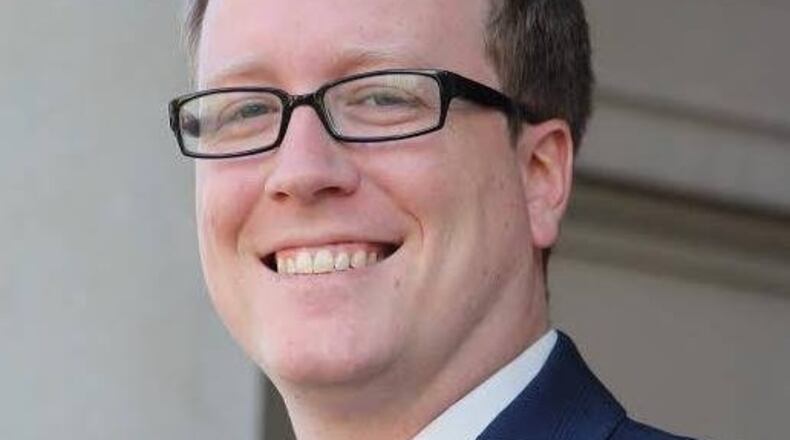The Libertarian candidate for lieutenant governor has filed a lawsuit challenging a Georgia law that allows a few candidates to raise unlimited campaign contributions, saying it puts hopefuls who are not Republicans or Democrats at a disadvantage.
Ryan Graham, the Libertarian candidate on the November ballot, said in the lawsuit that his constitutional rights are being violated because state law has set a lower fundraising limit for third-party candidates. It also limits how much most Democrats and Republicans can raise.
Statewide candidates, such as those running for lieutenant governor, are currently allowed to raise $7,600 from individual donors for the primary and again for the general election.
But Republican lawmakers in 2021 passed a law that also allows the Republican governor, the Democratic gubernatorial nominee, those two parties’ lieutenant governor nominees and party caucuses to create special leadership committees to raise as much cash as they can without limits for individual donors.
The law defines “political party” as a political organization that had a candidate for governor or president who received at least 20% of the votes cast in the previous election. That has always been Republicans and Democrats, except in 1968 when George Wallace won the state’s presidential race as a third-party candidate. That means Graham’s opponents, Republican Burt Jones and Democrat Charlie Bailey, can raise bigger contributions than Graham.
“The way the leadership committee statute is set up is that it creates different contribution limits for candidates who are running against each other in the same race,” said Bryan Sells, Graham’s attorney. “The Supreme Court has said because political fundraising is a fundamental right, that kind of inequality is unconstitutional.”
Graham said Libertarians should not be penalized because they poll lower than mainstream party candidates.
“Libertarians have a very similar setup as the Republicans and Democrats,” Graham said in a press release. “We have bylaws and a platform, we hold conventions and we run dozens of candidates. It’s yet another way the two major parties work together to snuff out the competition.”
As of June 30, the most recent campaign filing deadline, Jones had raised about $60,000 through his WBJ Leadership Committee in addition to about $2.7 million he’s raised since announcing his campaign last summer. He’s also loaned himself a total of $4 million.
Bailey reported raising about $1.1 million by the last filing deadline. His leadership committee, Defending Democracy, had not yet reported raising any money.
Graham reported raising about $6,000 for his campaign, with about $2,100 of that coming from the Libertarian Party of Georgia.
About the Author
Keep Reading
The Latest
Featured




